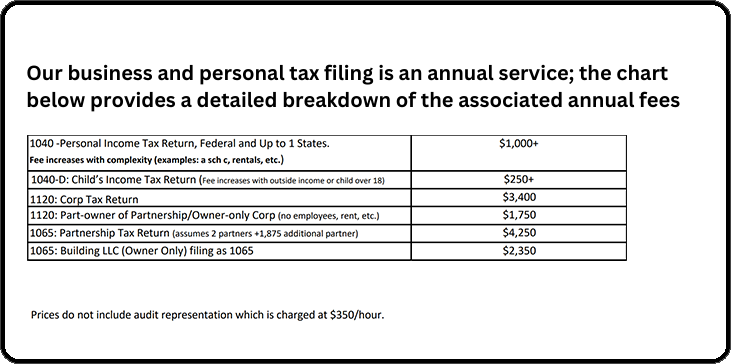Tune in to our podcast series: The Dental Board Room
Listen Now

The world of dentistry is undergoing a quiet revolution—one not driven by drills or scalers, but by algorithms and intelligent software. Artificial Intelligence (AI), long talked about in tech circles, is now making meaningful inroads into dental practices. And it’s not just theoretical. Tools like Overjet AI are being used right now to help dentists diagnose disease more precisely, communicate more clearly with patients, and streamline the administrative grind that weighs down so many practices.
So, why is this moment so pivotal for dental AI? And what can you actually expect when you bring AI into your practice?
Let’s take a look.
One of the biggest misconceptions surrounding AI in healthcare is that it’s coming to replace human professionals. In dentistry, that’s far from true.
AI doesn't drill teeth. It doesn’t build rapport. It doesn’t explain to a worried parent why their child needs orthodontic intervention.
But what it can do is free up your time and mental bandwidth—by doing things like scanning radiographs with consistent precision, identifying signs of periodontal disease that may otherwise be missed, or helping you present case findings visually in a way that patients actually understand.
When paired with human expertise, AI becomes a force multiplier. It helps good dentists become great dentists—not by changing what they do, but by improving how efficiently and clearly they do it.
One of the most powerful outcomes of using AI in the operatory is the increase in case acceptance rates. Why? Because most patients don’t understand clinical language. They don’t “see” bone loss the way you do on a radiograph. They don’t know what a 3mm pocket means for their long-term oral health.
But when AI is used to annotate those images with color-coded visuals and simple explanations, it turns the diagnosis into a conversation. It invites the patient into the process. They see the problem. They trust the treatment. They say “yes” more often.
AI, in this case, isn't just a diagnostic tool—it's a communication bridge.
Most dental offices lose time and money in the back office. Insurance verification. Claim denials. Manual chart audits. Follow-ups that fall through the cracks.
AI tools—especially those integrated into practice management software—are beginning to change that.
Imagine verifying a patient’s insurance automatically before they even walk in. Or knowing, at the point of treatment planning, what the insurer is likely to cover—and what the patient will owe. That level of clarity leads to fewer surprises, better financial conversations, and smoother collections.
It also leads to fewer denied claims and faster reimbursement.
In short: AI can do more than assist in diagnosis—it can help optimize the financial health of your practice.
AI in dentistry isn’t just experimental anymore. Tools like Overjet have earned FDA clearance, meaning they meet stringent standards for safety, accuracy, and clinical value.
That should instill confidence—not just in the dentist, but in patients too. It affirms that AI is more than a fancy add-on. It’s a validated medical tool, built to support real-world clinical decision-making.
And with AI models that learn from user feedback and are refined by teams of dentists—not just software engineers—you get a system that improves over time while remaining grounded in sound clinical logic.
Adopting AI today may feel experimental—but doing so gives you a head start. You don’t need to be a tech expert. You just need to be curious and open to improvement.
As more practices onboard AI into their daily workflow, those who waited may find themselves playing catch-up—not just with the technology itself, but with patient expectations. As patients get used to seeing annotated visuals, real-time insurance estimates, and faster responses, they'll begin to prefer practices that offer that experience.
If you’re a private practitioner, this is your opportunity to level the playing field with the large DSOs already investing in AI. You don’t have to reinvent your systems—you just need to add intelligence to them.
AI is not the end of hands-on dentistry—it’s the evolution of it. The goal is not to hand off responsibility to machines, but to leverage technology that makes your care more accurate, more efficient, and more human.
As we look forward, the most successful dental offices will be the ones that strike that balance: blending clinical expertise with digital intelligence, high-touch care with high-tech tools.
The future is already here. The only question is—will you lead with it?
Wes knows what's best for dental practices. He's been doing this for a long time and he sees lots of practices. He can tell me how our practice is doing, and what we can do to increase our productivity. With past CPA's, there were no ideas. It was all coming from me, saying "I think I can do better, but I don't know how." I come in to meet with Wes and he says "You CAN do better, and I know how."
PracticeCFO is in hundreds of dental offices around the country. They know what numbers should look like. They know what percentages of payroll, rent and supplies should be, and they will hold you accountable to those numbers, which will really help you stick to your plan and your path of growth and savings. That is invaluable
Whenever something comes up, whether it's building or practice related and we weren't sure where the numbers would go, PracticeCFO has been instrumental in helping us figure that out. I can't say enough of how important that is - that it goes beyond that initial partnership. They make sure this business marriage works.
When I go home from work, I don't spend a whole lot of time stressing about what my books look like, or how much I owe in taxes. By using PracticeCFO, the burden of keeping track of a lot of the big financial numbers and metrics are taken off my plate.
PracticeCFO helped me develop a plan for the future. I have colleagues that work with other accountants that don't have a plan - they just look at the numbers of the practice and that's it. There's no plan for 10, 20 years from now. But with PracticeCFO, you get that. PracticeCFO makes you feel like you're they're only client.
(In reference to his practice sale) What could've been super stressful, wasn't! When picking John and Wes, it was from word of mouth recommendations and other people's experiences from the past that really did it for me. And it turns out that those recommendations were right on the line.
Wes knows the business side of dentistry. His comprehensive plan will organize your personal and professional finances so you can focus on taking care of patients. Massive ROI.
I can’t say enough good things about everyone at PracticeCFO. Everyone on the team is professional, organized, knowledgeable, helpful and kind. They also respond to emails and phone calls immediately and are always happy to help. They have helped me navigate year-to-year as a business owner. PracticeCFO gives me peace of mind that my business is in good hands.
I love Practice CFO! They have helped me obtain a practice and maintain a practice. They are incredible people who are on top of everything and make owning and running the business portion of a practice easy. They couldn’t be better for my business and my sanity. They have every detail of the business and taxes taken care of where all I have to do is show up and follow their easy steps to success!
Practice CFO has the best tools I’ve seen for personal tax and financial planning in addition to top-tier corporate tax and accounting services. I have been very pleased with the level of quality service. They manage my monthly bookkeeping and accounts payable. It is a great system and saves me a ton of time, and it allows us to have monthly financial statements within a week of month end.

This will close in 0 seconds